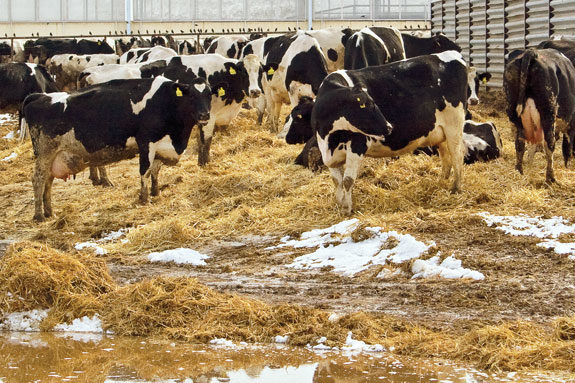2010 has been another difficult year for dairymen. How can we make 2011 better? While it’s not possible to impact milk price or feed costs, you can control performance, productivity, efficiency and operational management of your dairy. As we work on dairies across this country, we find opportunities to improve communication between owners, middle managers and cowside workers as the key to unlock increased productivity and efficiency.
Very often well-intentioned workers make poor cowside decisions because they either aren’t clear on what to do or aren’t motivated to do the right thing.
Higher cell counts and mastitis, fewer pregnancies and higher death losses are examples of the results.
The differences between your culture and the culture of your Hispanic workforce makes a huge difference in the results produced on your dairy.
Your Hispanic employees have an entirely different point of view and a different value system than you do. Americans make a plan and stick to it regardless of what other issues arise; we then “watch the clock.”
The following example may explain cultural differences between Hispanics and Americans.
If an American is late to work but sees someone he knows, he quickly says “Hi,” but he then explains that he is late for work and can’t talk right now. For us, this is normal because we understand that work is more important than that person right now.
For us, time is a commodity that is divided up, measured, plotted and tracked. Time is “money,” and we “live to work."
But when the Hispanic person meets a friend on the way to work, he stops and talks because the relationship is more important than the clock; the relationship is the highly-valued commodity. It would be an insult to say, “I have to go to work right now,” because that message is interpreted as, “You think your work is more important than me as a person.”
American culture values time and sacrifices relationships; Hispanic culture fosters close relationships over time and productivity. Each culture has its strengths and weaknesses.
Your point of view as an owner can interfere with your ability to influence the individuals that have to get work done. We see opportunities for improvement from both sides of the management spectrum – owners to workers and workers to owners.
To demonstrate how to improve dialogue between you and your Hispanic workers, I’m going to attempt to represent your workers’ thoughts and needs to you in the following open letter from workers to dairymen.
In the most current issue of El Lechero , I made the same attempt to represent what I think may be your thoughts toward your Hispanic workers. Good intentions create results when communicated.
Mr. Dairyman,
I want to do my job right; please train me. Show me exactly what you want me to do and how to do it. I may be coming to work for you from another dairy, and they do some things very different. Or even if I’ve worked for you for awhile, I need to be certain that I know exactly what you want me to do.
I am intelligent enough to understand and will learn as fast as I can; but I want to know exactly what you want. Please have patience with me, but know I want to do what is right.
Treat me with respect and give me honest feedback on my work. I don’t always understand the relationship between work and results, so let me know what you think of my work. The money I earn is very important to me, but feedback is even more important.
Tell me when I am doing things wrong immediately, but also let me know when I’m doing my work correctly. Don’t think that I am going to ask for more money when you tell me I’m working well. I trust that you will pay me fairly, but I need the respect and your honesty about my job performance.
Help me overcome feeling timid – the concern I have about wanting to talk to you when I’m not certain about exactly what you want me to do. Sometimes when I’m not clear about what you expect, I want to ask but I am not comfortable doing so because I’m not sure what you’ll think of me.
Sometimes my respect for you gets in the way; I hope you can understand when these situations occur and help me talk to you about them.
Relationships between me and my fellow workers and the time I need with my family are very important. I am willing to work hard and put in extra hours when necessary, but I would like some recognition when I do, so that my friends and family understand when I am not with them.
For all of us, communication is more difficult when language and culture are barriers. These barriers are difficult but not impossible to cross. Anglos that attempt to speak Spanish gain an immediate level of respect from their Hispanic workforce. But be careful when you know “a little bit of Spanish.”
We’ve observed situations where good intentions but insufficient command of the Spanish language cause problems and lead to more confusion. Communicate through bilingual Hispanic workers and use outside resources to help bridge the language barrier.
Work with or have someone you trust show your Hispanic workers exactly how to do what you want them to do. Practical efforts to bridge the cultural and language barriers can have a significant impact on your “bottom line.” PD








